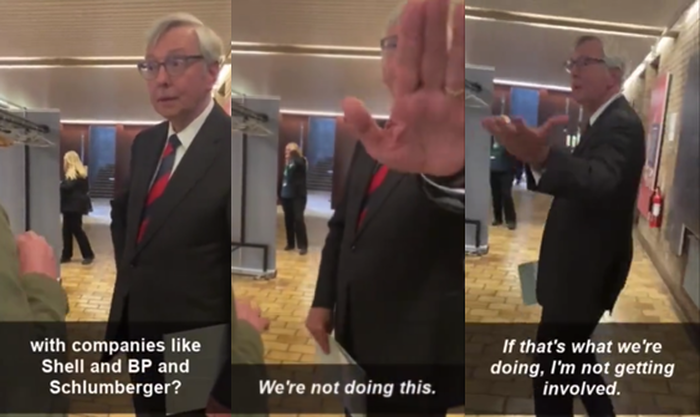Toope: I went to see Enoch Powell instead of going to the pub
The vice-chancellor said he chose to listen to the anti-immigration politician, whose views he ‘despised’, when he was a student

Stephen Toope, the vice-chancellor, said he chose to listen to the controversial anti-immigration politician Enoch Powell, whose views he “despised”, when he was a student instead of going to the pub.
In a lecture on the University’s global role at Homerton College, Toope said that Cambridge is “no place for cancelling”.
Toope said: “[Listening to Powell] was my choice. I could have been at the pub, instead, or in my college room listening to music... I chose to go – curious about what he’d say, and whether I would find any of it remotely compelling.
“As it happens, I didn’t. His arguments did not win me over… That evening we listened to a man whose views we strongly disagreed with, we challenged him through robust questioning, and then we sent him packing.”
Toope also lamented the “extremism” of the “culture wars” in Cambridge, as he described the actions of some Cambridge scholars and students on social media as “frankly shameful”.
In the lecture, Toope highlighted the threats posed by Brexit and extreme “identity politics” as two of the primary issues facing the University.
Toope spoke of the “hugely worrying prospect of a brain drain” of senior academics who have lost EU funding and are forced to move their research abroad.
The vice-chancellor expressed fears that a pioneering research lab looking into the cognitive differences between animals and humans in the department of psychology will be forced to close soon due to a lack of post-Brexit funding. A petition to keep the lab open was signed by 358 academics.
Toope also criticised the Government risking Britain’s position as a “science superpower” by “sleepwalking in the opposite direction”, underlining the example of Dr Nicholas Walton losing his leadership of a €2.8m astrophysics research programme due to a Brexit dispute.
Toope’s tenure as vice-chancellor concludes on the 30th September, at the end of the academic year.
 News / Cambridge student numbers fall amid nationwide decline14 April 2025
News / Cambridge student numbers fall amid nationwide decline14 April 2025 Lifestyle / First year, take two: returning after intermission14 April 2025
Lifestyle / First year, take two: returning after intermission14 April 2025 News / First candidate to announce chancellorship bid pledges to tackle bullying 12 April 2025
News / First candidate to announce chancellorship bid pledges to tackle bullying 12 April 2025 News / Uni to ‘review’ tripos rankings and weekend lectures in undergrad teaching overhaul10 April 2025
News / Uni to ‘review’ tripos rankings and weekend lectures in undergrad teaching overhaul10 April 2025 Sport / Cambridge celebrate clean sweep at Boat Race 202514 April 2025
Sport / Cambridge celebrate clean sweep at Boat Race 202514 April 2025




